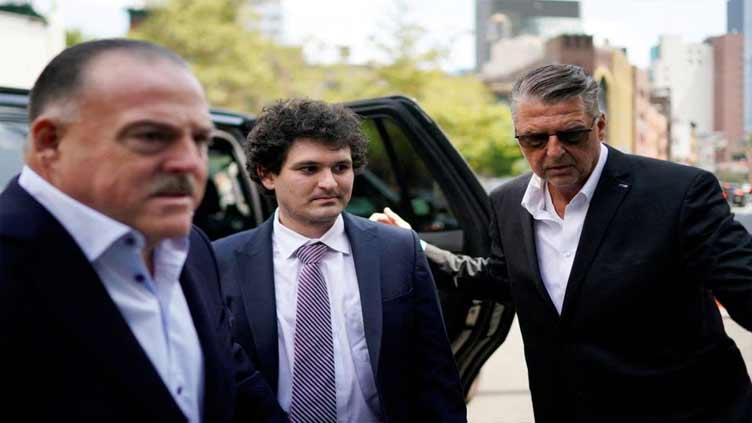Sam Bankman-Fried's lawyer says FTX investments were not 'reckless'

Technology
FTX declared bankruptcy on Nov. 11, 2022
NEW YORK (Reuters) - FTX founder Sam Bankman-Fried's lawyer on Tuesday said the now-bankrupt cryptocurrency exchange's investments were not "reckless and frivolous," pushing back against testimony by former executive Nishad Singh portraying its spending on marketing and celebrity endorsements as excessive.
Singh, FTX's former engineering chief, testified for a second straight day at Bankman-Fried's fraud trial in Manhattan federal court. Under cross-examination, Singh told the jury that he thought FTX would be able to stay in business upon learning in September 2022 of a $13 billion shortfall in customer funds, potentially bolstering Bankman-Fried's argument that he believed the exchange's troubles were manageable.
FTX declared bankruptcy on Nov. 11, 2022.
Singh testified on Monday that the company's venture investments and $1.1 billion in planned marketing deals, including naming rights to the arena where the NBA's Miami Heat play and featuring NFL quarterback Tom Brady in commercials, "reeked of excess and flashiness."
Defense lawyer Mark Cohen on Tuesday asked Singh, one of three former members of Bankman-Fried's inner circle who have pleaded guilty to fraud and agreed to cooperate with prosecutors, whether promoting FTX's brand could be useful.
"I understood it had business benefits and costs," Singh said in testimony that defense lawyers could use to argue that Bankman-Fried was making what he believed to be good-faith business decisions in shelling out funds for marketing and investments even if others disagreed.
Bankman-Fried is in the third week of his trial on charges involving the looting billions of dollars in FTX customer funds to make investments, donate to U.S. political campaigns and prop up his hedge fund, Alameda Research. He has pleaded not guilty.
Singh testified on Monday that he worried a deal the company had with an investment firm called K5, which Bankman-Fried described as a "one-stop shop" for brokering relationships with celebrities, would prove "toxic" for FTX's culture.
On Tuesday, Singh said K5 also helped Bankman-Fried invest in a tequila brand run by a "famous celebrity," when asked by Cohen whether the firm was anything more than a relationship broker.
"Yesterday (Monday) we were told these were all reckless and frivolous investments, and I'm entitled to show that there was way more to it than we were told yesterday," Cohen said, after a prosecutor objected to his questioning about K5.
In a lawsuit filed against K5 in June seeking to claw back $700 million, FTX's current management said a Bankman-Fried-controlled shell company used $214 million in FTX funds to buy a stake in celebrity Kendall Jenner's 818 Tequila brand at a time when the tequila company's assets were valued at just $2.94 million. K5 said the lawsuit was without merit.
Bankman-Fried has argued that while he made mistakes running FTX, he never intended to steal funds. His lawyers have said he is considering taking the witness stand in his own defense.
Jurors have already heard from Gary Wang, FTX's former chief technology officer, and Caroline Ellison, Alameda's onetime chief executive officer and Bankman-Fried's former girlfriend.
Cohen questioned Singh on Tuesday about a confrontation he had with Bankman-Fried in September 2022 after learning Alameda owed billions of dollars to FTX customers. He confronted Bankman-Fried on the balcony of the $35 million Bahamas penthouse they shared with many FTX and Alameda employees.
Singh acknowledged that he was anxious at the time, and said he was suicidal then and for several more months. He testified on Monday that Bankman-Fried was angry during the conversation.
After telling Cohen he thought FTX could stay in business "for some amount of time" despite the shortfall, Singh said he had previously told U.S. authorities he thought the company could survive for years.
Cohen also pressed Singh about a $3.7 million home he purchased using FTX customer funds in Washington state in the fall of 2022. Singh acknowledged buying the Orcas Island home, but said he was "ashamed" and had agreed to forfeit it as part of his plea agreement.
"I was putting myself ahead of customers," Singh said.


